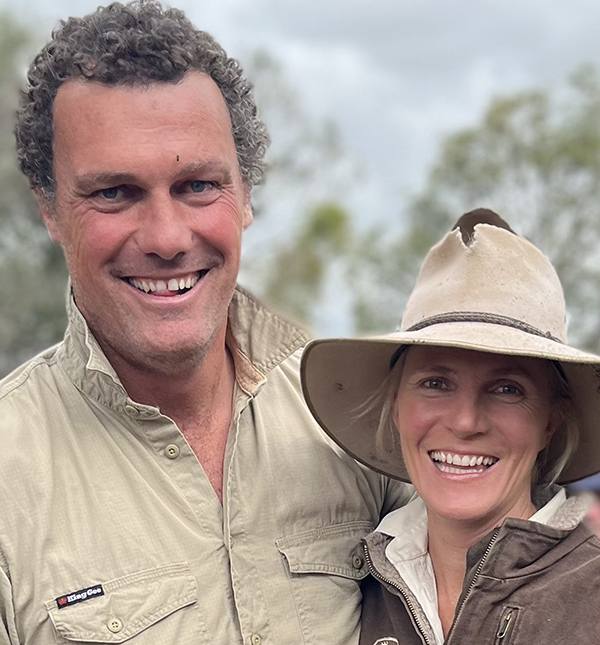Using genetics to address market requirements and seasonal challenges
30 March 2022

For JB and Alison Tancred, who manage GRASS Merinos, genetics has been an essential tool in addressing changing variations in market and seasonal conditions over the years.
Located in the Central West of NSW, GRASS – which stands for the Gulargambone Rural Association for Sheep Selection – is run as a collaborative enterprise, breeding rams raised under commercial conditions and selected for measurable economic performance.
JB said breeding for market demands has been the long-term focus for the business, since it was established in 1975 by a group of 10 Merino sheep producers who contributed premium foundation sheep.
“The demands of the markets have changed multiple times, but what hasn’t changed has been our focus on genetics, which has helped us to establish and maintain a healthy line of Merino rams over the years,” said JB.
“In the early days of the stud there was a heavy selection emphasis on clean fleece weight and every maiden had to raise a lamb in order to stay in the stud.
“Since those days we have reviewed our breeding objectives to be more balanced, however, wool cut and reproduction are still important traits.
“A key part of our work at GRASS when it comes to genetics is about achieving productivity and profitability particularly in non-visual, lowly heritable traits or antagonistic (or unfavourable) relationships across fleece, growth rate, reproduction and animal welfare traits.”
JB will provide insights into designing breeding programs when he speaks at the free Livestock Genetics Forum in Adelaide next week – on 5–6 April.
He’ll delve into the key breeding strategies used at GRASS and will provide practical messages for commercial and stud producers alike.
Science around genetics is moving quickly
In the time that JB and Alison have worked in sheep breeding, they have noticed how quickly the science around genetics has moved.
They’re constantly reviewing Australian Sheep Breeding Values (ASBVs) produced by MLA’s Sheep Genetics program as well as engaging with Sheep Genetics at events in order to keep abreast of any new and interesting developments in this space.
“It’s essential for producers to keep a close eye on changing science around sheep genetics. There are always new ASBVs and Indexes being added for producers to implement in their livestock breeding programs,” JB said.
“My presentation at the Livestock Genetics Forum will discuss how to maintain a balance when selecting traits, especially when those traits are antagonistic in nature.
“This discussion in Adelaide is important for stud breeders, but it also equally important for commercial breeders.
“Breeders in both a stud and commercial context need to realise that if they only select for one trait, then the traits that are antagonistic to that trait will go in the opposite direction.
“I’d encourage all producers to come along and learn this important information from the forum. Without this information, the sheep industry may miss out on the potential gains offered by genetics,” said JB.
The Livestock Genetics Forum is free but registrations are essential for catering and COVID management requirements – click here for details. A new addition to the event is networking drinks and nibbles at the Adelaide Convention Centre from 6.30pm-8.30pm on Tuesday 5 April.
The full Livestock Genetics Forum program of insights into developments in genetics is available here.


